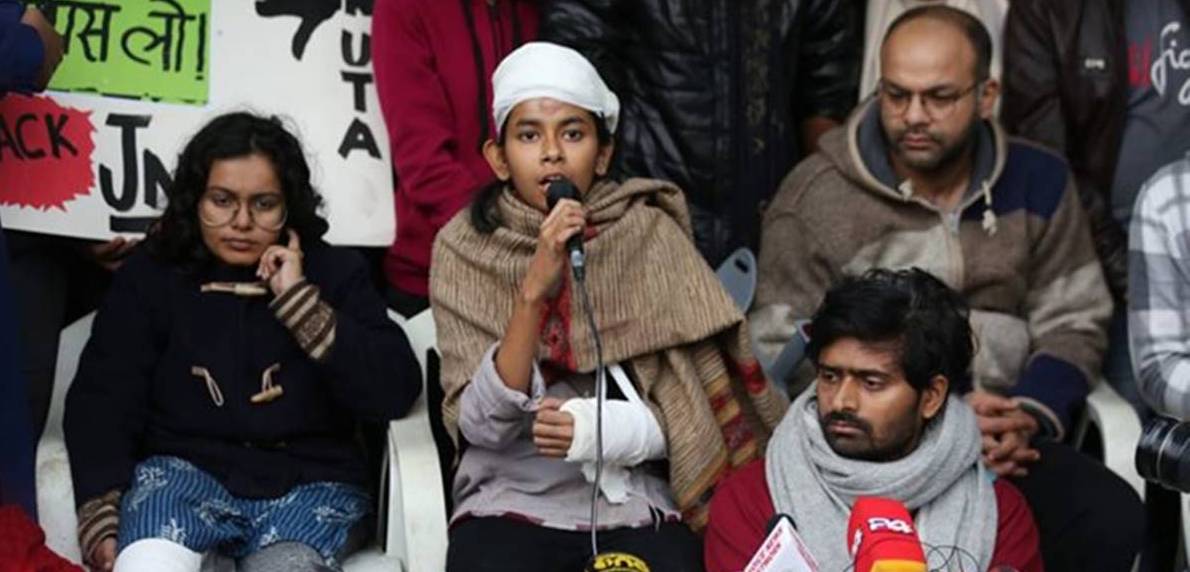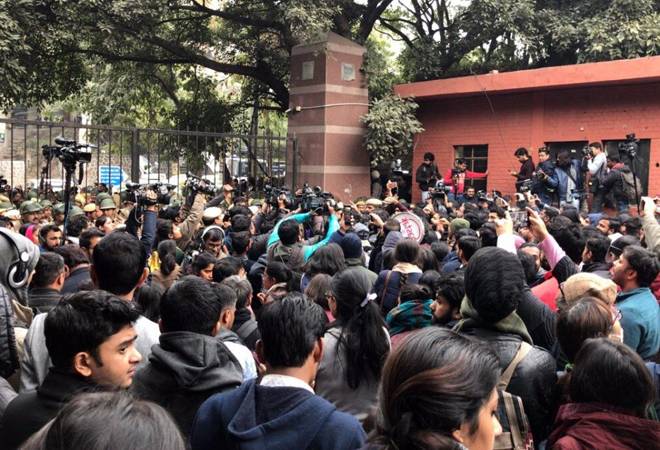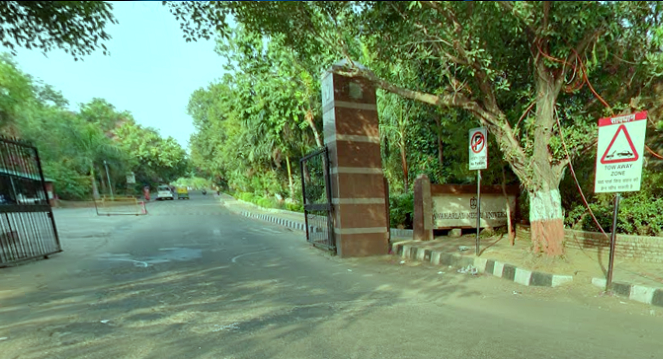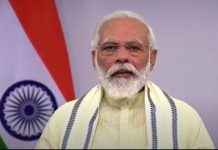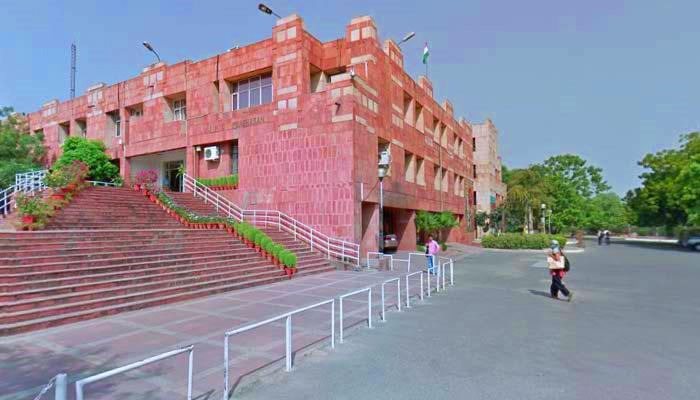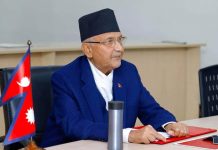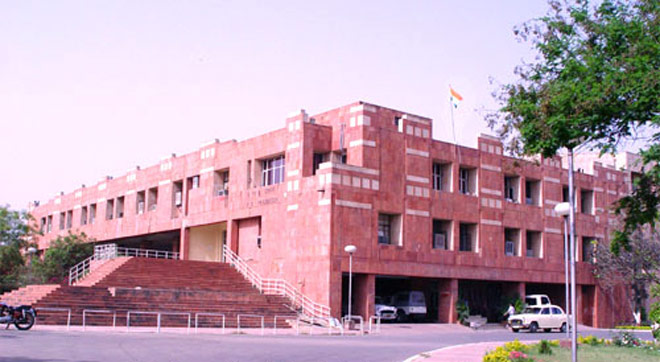OPINION
Should we see something beyond the ‘Statue of Unity’? Even at this moment of media simulation and propaganda ,the author has sought to persuade the readers to reflect, and fight for real unity – not an imaginary construct.
Avijit Pathak is a Professor of Sociology at JNU, New Delhi.
[dropcap]T[/dropcap]his article is not about Sardar Patel’s contributions to the making of modern Indian nation; nor is it about the symbolic significance of the ‘Statue of Unity’–its record-breaking height, or its grandeur. I am also not interested in writing about the politics of appropriation: projecting Patel’s ‘unitary mission’ as distinctively different from Nehru’s ‘vulnerable secularism’, or through the ‘iron man’ an attempt to see the heritage of Gujarat beyond tender/soft/’pro-Muslim’/’impractical’ Mohandas Karamchand Gandhi. My purpose is somewhat different. I wish to reflect on ‘unity’–a desirable ideal, but difficult to achieve unless we are truly sincere in understanding its deeper meaning.
Unity is not Uniformity
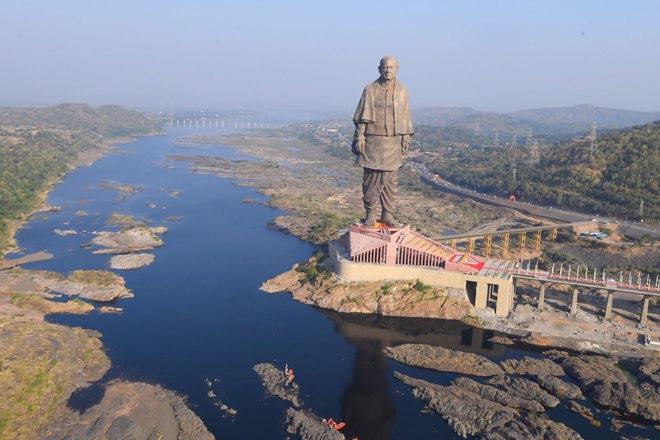
To begin with, it is important to realize that unity is not uniformity, even though we often feel tempted to think so. One thing that nature has taught us is that differences are normal, desirable and healthy. Visit a forest. Every tree looks different; its beauty lies in these splendid differences. Imagine a ‘perfect gardener’ cutting every tree into a uniform shape and size! It would be against nature; it would be disastrous. Zygmunt Bauman-a great social philosopher of our times, gave this analogy to explain the violence of holocaust and Hitler’s project. Hitler as a ‘perfect gardener’ didn’t like the Jews or, for that matter, any ‘unlicensed difference’. Uniformity can be dangerous.
Yes, differences are all around – multiple linguistic articulations, multiple cultural idioms, multiple faiths, multiple culinary practices, and multiple knowledge systems. At times, in the name of ‘national integration’ or ‘modernist project’ we feel tempted to suspect differences as ‘obstacles’, and become over-enthusiastic to impose a culture of uniformity-say, the defined ‘nationalist’ symbol or icon, and the projection of the dominant or majoritarian belief as the most privileged truth. That is why, I would assert that the present form of Hindutva is against the spirit of natural differences; in the name of ‘unitary nation’ it propagates the principle of reckless uniformity. It is anti-nature, it is against the rhythm of life, and hence, it is anti-people. Take a simple illustration. I am a Hindu.
Any totalitarian/fundamentalist doctrine -be it Islamic fundamentalism, Christian orthodoxy or social engineering of techno-scientific ‘development’ projects in the name of ‘progress’ -is violent, and goes against plurality and symmetrical differences.
Yet, my understanding or experience of being a Hindu is not in tune with the ethos of Hindutva. While the likes of Golwalkar and Savarkar have told us to see Muslims and Christians as ‘alien intruders’, my Upanishadic longing, and my Gandhi and Tagore have taught me something else–seeing the manifestations of the same Energy in diverse forms. There is nothing alien; the divine speaks through every form. I am not giving this illustration to prove that the problem lies only in Hindutva. In fact, I must say that any totalitarian/fundamentalist doctrine -be it Islamic fundamentalism, Christian orthodoxy or social engineering of techno-scientific ‘development’ projects in the name of ‘progress’ -is violent, and goes against plurality and symmetrical differences.
It is, of course, true that all differences are not necessarily desirable. For instance, in the name of ‘cultural specificity’ we should not support the practices that hurt human dignity, or cause severe psychic/spiritual damage to women, or destroy the eco-system. We do grow, evolve; and change is as natural as diversity is. Yet, this change has to come through constant dialogue, inner churning within each cultural community, and socio-political/spiritual transformation for creating a gender-sensitive/ecologically sustainable/non-patriarchal/non-exploitative world in which differences, far from insulating us, create the ground for constant cross-cultural conversation and psychic evolution.
Hence, my submission is that we need to see beyond the absolute relativism implicit in unlimited differences and the doctrine of absolute uniformity implicit in religious nationalism or militaristic project of unity. The popularization of Hindutva or the valorization of the army, it has to be undestood, is easy -a product of mass stimulation. However, a living democracy is always a difficult project; it needs human sensitivity, empathy and dialgue. It is beyond the binaries of ‘modern’ and ‘postmodern’, and ‘uniformity’ and ‘relativism’.
Does Mr. Modi understand it?
Unity Demands the Politics of Care
You need not be a Marxist or an Ambedkarite to know that conflict prevails, and there cannot be true unity unless we eradicate the seeds of this conflict. Open your eyes, and just feel the intensity of exploitation, inequality and conflict in our society. Caste hierarchies prevail; adivasis, forest dwellers and the urban poor continue to be displaced and marginalized for the projects of ‘development’ that primarily cater to the needs and greed of the affluent (24*7 electricity in malls amid innumerable dark villages; mineral water for the rich, lavish swimming pols in five star hotels, and yet, the ugly politics of tanker in slums and lower middle class colonies in the absence of supply of drinking water; Diwali ‘discounts’, IPL spectacles and fashion shows amid farmers committing suicide); continual reproduction of inequality through highly stratified and hierarchical form of schooling, and the suppression of alternative voices through all sorts of military/para military operation. How can we remain indifferent to all these visible markers of conflict in society?

No, you cannot hide this conflict through the ideology of mythical unity. A street child begging in the national capital does not feel unity with the rich driving their fancy cars; a teenager with torn clothes studying in a municipality school does not feel unity with a Delhi Public School student participating in a quiz context conducted by the media icon Rajdeep Sardesai; a farmer from Jharkhand burdened with loan cannot have affinity with Mr. Modi’s fancy clothes; or for that matter, for a construction worker in the Delhi Metro project continually exploited by the contractor and the official Babu , it hardly matters whether the ‘Statue of Unity’ has broken all records.
Like all sensible beings, I too love unity and harmony; I do not want to live in a conflict-ridden society. Yet, for peace, dignity, unity and symmetry we have to do something to remove the roots of conflict and gross socio-economic inequality.
Sharing, austerity, empathy, concern for others, justice – we seem to have lost this language in the age of mindless consumption, smart cities, bullet trains and culture of narcissism.
First, it needs the ethics of care; it needs a strong belief in social justice and distributive system. It is sad that with the onslaught of neoliberal economy many of us-I mean the rich and the aspiring middle class- have begun to cherish some sort of social Darwinism-the aggressive doctrine of the survival of the fittest. Sharing, austerity, empathy, concern for others, justice – we seem to have lost this language in the age of mindless consumption, smart cities, bullet trains and culture of narcissism. We ought to change ourselves. Even if it appears to be ‘stupidly moralistic’, there is no other alternative.
Second, we need a caring state that works not for the Adanis and the Ambanis of the world, but for people’s welfare. Socialism is not a bad word. In the name of neoliberal discourse of ‘good governance’ we seem to have forgotten it. The distribution of collective wealth through quality education and health facilities for all, assuring human dignity to all irrespective of birth, and fulfillment of basic survival needs like food, shelter and dignified vocation for livelihood–these ideals–cherished by the likes of Marx, Ambedkar and Gandhi – ought to enchant us for creating the solid ground for unity.
Mr. Modi, you ought to understand that symbolism alone does not work. And at times, when everything around us is so dark, brutal and unjust, your much-hyped love for Patel, and even a record-breaking ‘Statue of Unity’ look absurd.


